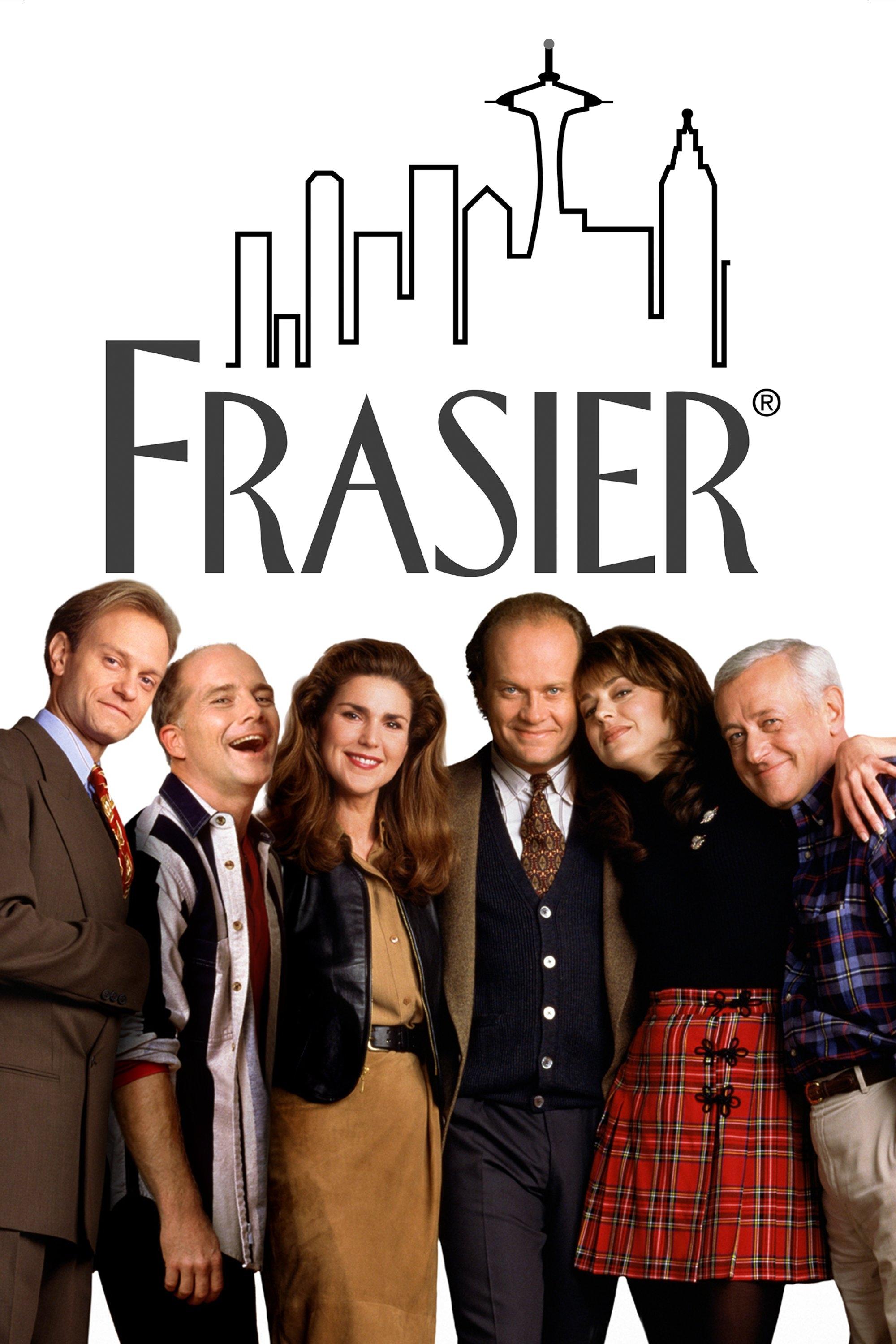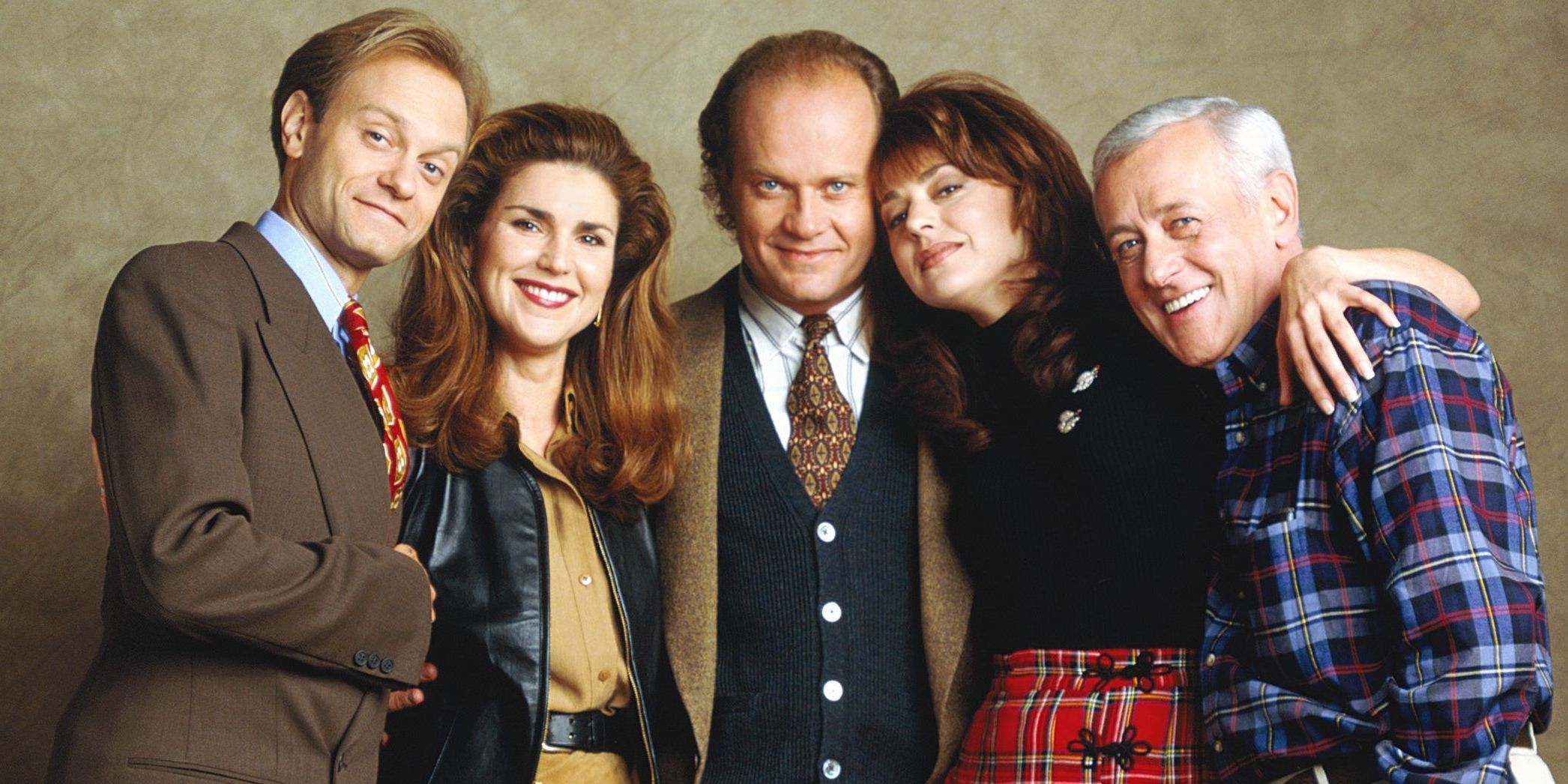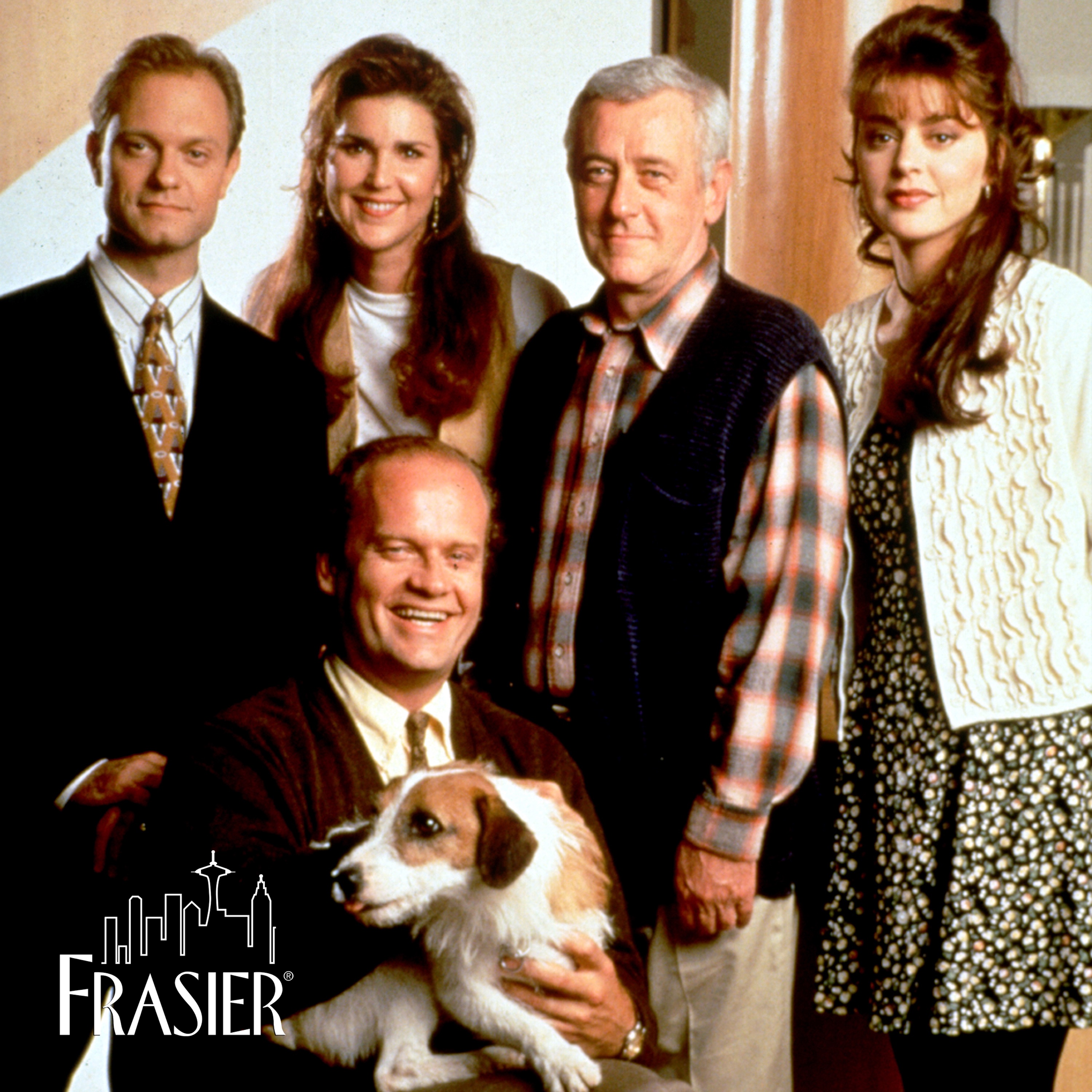Frasier I Hate Frasier Crane: The Love-Hate Relationship With A Sitcom Icon
Few characters in television history have elicited such a complex mix of admiration and exasperation as Dr. Frasier Crane. For many, the very phrase "Frasier I Hate Frasier Crane" isn't a dismissal of the beloved sitcom, but rather a confession of the deeply nuanced, often frustrating, relationship viewers have with its titular character. While the show itself remains a benchmark for witty dialogue and sophisticated humor, Frasier Crane, with all his intellectual snobbery and emotional ineptitude, can be a truly trying individual. This article delves into the enduring legacy of *Frasier*, exploring why, despite its critical acclaim and enduring popularity, its central figure often inspires a peculiar brand of affectionate disdain.
The journey of Dr. Frasier Crane began not in Seattle, but in Boston, as a recurring character on the immensely popular sitcom *Cheers*. His transition to his own spin-off, *Frasier*, which was broadcast on NBC for an impressive 11 seasons from September 16, 1993, to May 13, 2004, was a testament to the character's potential. Created by David Angell, Peter Casey, and David Lee, the show quickly established its own unique identity, chronicling the lives of the eloquently pompous radio show host, Dr. Frasier Crane, as he navigated new challenges in his hometown of Seattle. With a stellar cast including Kelsey Grammer as Frasier, Jane Leeves as Daphne Moon, David Hyde Pierce as Niles Crane, and Peri Gilpin as Roz Doyle, alongside the unforgettable John Mahoney as Martin Crane, *Frasier* carved out a niche as one of television's most intelligent comedies. Yet, even as we celebrate its brilliance, it's impossible to ignore the very traits that make us occasionally utter, "Frasier I Hate Frasier Crane."
Table of Contents
- The Enduring Legacy of Frasier: A Brief Overview
- Frasier Crane: A Character Study in Pomp and Circumstance
- Why "I Hate Frasier Crane" Resonates with Some Viewers
- The Uncomfortable Truths: Frasier's Flaws and Foibles
- The Reboot Era: Does Frasier Crane Change His Spots?
- The Paradox of Dislike: Why We Still Watch (and Talk About) Frasier
- Beyond the Psychiatrist's Couch: The Broader Impact of Frasier
- A Personal Reckoning with Dr. Crane: My Own "I Hate Frasier Crane" Moments
The Enduring Legacy of Frasier: A Brief Overview
Before diving into the specific reasons why some viewers might feel compelled to exclaim, "Frasier I Hate Frasier Crane," it's crucial to acknowledge the show's monumental success and its place in television history. *Frasier* wasn't just a spin-off; it evolved into a cultural phenomenon in its own right, setting records for Emmy wins and consistently delivering smart, character-driven comedy.
- What Does Benjamin Orrs Son Do
- Michelle Saniei Age
- Dying Earth Genre
- Lizzie Mcguire The Movie Cast
- Honey Birdette
From Cheers to Seattle: The Genesis of a Psychiatrist
Dr. Frasier Crane first appeared in the third season of *Cheers* as a love interest for Diane Chambers. What began as a temporary role quickly blossomed into a permanent fixture, with Kelsey Grammer's portrayal of the erudite, slightly neurotic psychiatrist winning over audiences. By the time *Cheers* concluded, the character had developed enough depth and comedic potential to warrant his own series. The premise of *Frasier* saw the psychiatrist return to his hometown of Seattle to host a radio talk show, providing advice to callers. This new chapter also brought him face-to-face with his working-class, disabled father, Martin, and his eccentric live-in physical therapist, Daphne, setting the stage for a delightful clash of cultures and personalities within the confines of Frasier's meticulously decorated apartment.
The Original Run: A Sitcom Phenomenon
From its premiere on September 16, 1993, *Frasier* quickly distinguished itself with its sophisticated humor, rapid-fire dialogue, and a masterful ensemble cast. The show's creators, David Angell, Peter Casey, and David Lee, crafted a world where high culture met lowbrow sensibilities, often with hilarious results. The dynamic between Frasier, his equally pompous brother Niles (David Hyde Pierce), and their grounded father Martin (John Mahoney) formed the comedic backbone of the series. The show garnered critical acclaim throughout its 11-season run, becoming one of the most awarded sitcoms in television history. Its ability to blend farcical situations with genuine emotional depth ensured its longevity and cemented its status as a timeless classic. Even with such accolades, the seeds of "Frasier I Hate Frasier Crane" were often sown in the very traits that made him unique.
Frasier Crane: A Character Study in Pomp and Circumstance
Frasier Crane is, by definition, a man of refined tastes and intellectual pursuits. He is a connoisseur of fine wines, classical music, opera, and obscure literature. His apartment is a shrine to modernist design, and his vocabulary is as expansive as his ego. He views himself as a beacon of culture in a world he often perceives as uncivilized. This inherent pomposity, while a rich source of comedy, is also the primary reason he can be so frustrating. He is often oblivious to his own hypocrisy, quick to judge others for their perceived lack of sophistication, yet equally prone to petty squabbles and childish tantrums when his own ego is bruised. This dichotomy is central to his character and often leads to the exasperated feeling of "Frasier I Hate Frasier Crane" among viewers.
His profession as a psychiatrist adds another layer to his complex personality. While he dispenses advice to thousands over the airwaves, his own life is a chaotic mess of romantic failures, familial misunderstandings, and a constant struggle with his own neuroses. He is, in essence, a shrink who desperately needs a shrink himself, a fact hilariously highlighted by his father Martin's blunt observations. This self-awareness, or rather, lack thereof, is a recurring comedic theme and a source of both sympathy and irritation for the audience. He strives for perfection, yet consistently falls short, often due to his own overthinking and intellectualizing of simple human emotions.
Why "I Hate Frasier Crane" Resonates with Some Viewers
The sentiment "Frasier I Hate Frasier Crane" isn't born out of a dislike for the show's quality, but rather a profound, sometimes visceral, reaction to the character's specific personality traits. It's the kind of "hate" reserved for a beloved, yet deeply annoying, family member. Here are some key reasons why this feeling often surfaces:
The Pompous Intellectual: A Double-Edged Sword
Frasier's intellectual snobbery is his defining characteristic. He uses his vast knowledge and refined tastes as a shield and a weapon, often looking down upon anything he deems "common" or "unrefined." Whether it's his father's taste in beer and television, Roz's dating choices, or the general public's lack of appreciation for opera, Frasier is quick to offer unsolicited, often condescending, opinions. This elitism, while played for laughs, can become grating. Viewers often find themselves rooting for him to be humbled, to have his carefully constructed world of sophistication crumble, just to see him experience a moment of genuine, unpretentious humanity. His constant need to prove his intelligence and cultural superiority often backfires, leaving him in embarrassing situations, which, while comedic for the audience, are often self-inflicted wounds born from his own arrogance. It's this persistent, almost pathological, need to be perceived as superior that makes many viewers occasionally utter, "Frasier I Hate Frasier Crane."
His Romantic Misadventures: A Cycle of Self-Sabotage
Frasier's love life is a perpetual train wreck, and much of it is self-inflicted. Despite his intelligence and charm, he consistently sabotages his relationships, often by overanalyzing, overthinking, or simply being too rigid in his expectations. He seeks an intellectual equal, a woman who shares his refined tastes, but often dismisses perfectly suitable partners because they don't fit his impossibly high, often superficial, criteria. He's prone to grand romantic gestures that often fall flat, and his attempts at casual dating are usually disastrous due to his inability to truly relax and be himself. The repetitive nature of his romantic failures, where he seems to learn nothing from past mistakes, can be incredibly frustrating to watch. You want him to find happiness, but his own neuroses and a deep-seated fear of vulnerability often stand in the way, making you want to shake him and shout, "Just be normal, Frasier!" This cycle of self-sabotage is a prime reason for the "Frasier I Hate Frasier Crane" sentiment.
The Uncomfortable Truths: Frasier's Flaws and Foibles
Beyond his snobbery and romantic woes, Frasier exhibits a range of other character flaws that contribute to his polarizing nature. He can be incredibly self-centered, often making situations about himself even when they clearly aren't. His passive-aggressive tendencies, particularly towards Niles, are frequent sources of conflict, even if they're rooted in a deep, if often unspoken, brotherly love. He's also prone to petty rivalries and a surprising lack of self-awareness for a trained psychiatrist. He'll often offer profound advice to his callers, only to spectacularly fail to apply the same wisdom to his own life. This hypocrisy, while a comedic goldmine, can be exasperating. For instance, his constant need for validation, whether from his peers, his family, or his radio audience, often drives him to absurd lengths, leading to situations that are both hilarious and deeply cringeworthy. These uncomfortable truths about his character are what make the "Frasier I Hate Frasier Crane" feeling so relatable for many viewers, as we see reflections of our own, or others', less desirable traits in him.
The Reboot Era: Does Frasier Crane Change His Spots?
The enduring popularity of *Frasier* led to a highly anticipated reboot, which premiered on Paramount+ on October 12, 2023. Created by Joe Cristalli and Chris Harris, this new iteration sees Frasier Crane uproot his life once more, moving to a different city to spend more time with his son. The trailer for the Paramount+ original reboot hinted at new challenges and new dynamics, raising the crucial question: has Frasier Crane evolved? Does he still embody the traits that make us occasionally declare, "Frasier I Hate Frasier Crane"?
The premise of the reboot suggests a shift in Frasier's priorities, moving from his career-focused life in Seattle to a more family-centric existence. While Kelsey Grammer reprises his iconic role, the absence of key original cast members like David Hyde Pierce (Niles) and John Mahoney (Martin, who passed away) means Frasier will be interacting with a new set of characters, including his now-adult son. This new environment offers the potential for Frasier to confront his past flaws and perhaps develop a greater sense of humility and self-awareness. However, the core of Frasier's character lies in his inherent pomposity and neuroses. It's likely that while he may face new challenges and grow in some areas, the fundamental quirks that define Frasier Crane will remain, continuing to provide both comedic fodder and moments that make us want to pull our hair out. The hope is that the reboot finds a balance, allowing for character development while retaining the essence of what makes Frasier, well, Frasier, even if that essence sometimes makes us exclaim, "Frasier I Hate Frasier Crane!"
The Paradox of Dislike: Why We Still Watch (and Talk About) Frasier
Despite the moments of frustration and the occasional declaration of "Frasier I Hate Frasier Crane," the show and its central character remain incredibly beloved. This is the paradox of Frasier Crane: we might find him annoying, pretentious, and self-sabotaging, yet we are endlessly drawn to his world. Why? Because his flaws are what make him human and relatable. His struggles with love, family, and finding his place in the world are universal, even if his specific problems are cloaked in high-brow concerns. We see glimpses of our own insecurities, our own attempts at self-improvement that go awry, and our own sometimes-unjustified pride in his character.
Furthermore, Frasier's flaws are always balanced by moments of genuine kindness, vulnerability, and even heroism. He cares deeply for his family, even if he expresses it awkwardly. He genuinely wants to help his callers, even if his personal life is a mess. He strives for a better, more cultured life, even if his execution is often clumsy. The brilliance of the writing allows us to laugh at him, empathize with him, and occasionally want to smack him, all within the span of a single episode. It's this complex emotional landscape that keeps viewers coming back, eager to witness his next grand pronouncement or spectacular failure. The "hate" is never absolute; it's always tempered by a deep affection for the character and the world he inhabits.
Beyond the Psychiatrist's Couch: The Broader Impact of Frasier
The impact of *Frasier* extends far beyond its comedic brilliance. The show elevated the sitcom genre, proving that intelligent humor, character development, and sophisticated themes could resonate with a mass audience. It explored complex family dynamics, the challenges of aging, the pursuit of happiness, and the often-hilarious disconnect between intellectual aspirations and everyday realities. The show's influence can be seen in subsequent sitcoms that prioritize wit and character over broad gags. It also cemented Kelsey Grammer's legacy as one of television's most iconic actors, capable of delivering both uproarious comedy and poignant dramatic moments.
Moreover, *Frasier* created a cultural touchstone. Phrases, running gags, and even specific episodes are still widely referenced and enjoyed by fans. The show's ability to remain relevant and entertaining decades after its initial run speaks volumes about its timeless quality. Even as we sometimes grumble, "Frasier I Hate Frasier Crane," we are simultaneously acknowledging the indelible mark he and his world have left on our collective consciousness. The show is a masterclass in character-driven comedy, and Frasier Crane, for all his infuriating traits, is undeniably at its heart.
A Personal Reckoning with Dr. Crane: My Own "I Hate Frasier Crane" Moments
As a long-time admirer of *Frasier*, I confess to having my own moments of "Frasier I Hate Frasier Crane." There are episodes where his self-absorption reaches peak levels, like when he manipulates a situation to get the best table at a restaurant, or when he completely misreads a romantic signal due to his own intellectualizing. His constant need to one-up Niles, despite their deep bond, can be particularly grating, especially when it leads to unnecessary conflict. I often find myself shouting at the screen, urging him to just *listen* to Martin for once, or to simply *be* with someone without overthinking every single interaction.
Yet, these very moments are what make the show so compelling. They are the friction points that generate comedy and, more importantly, reveal the layers of a truly complex character. The "hate" isn't genuine animosity; it's the exasperation one feels for a brilliant friend who just can't get out of their own way. It's the frustration of watching someone with so much potential stumble over their own ego. And in those moments, when he finally learns a lesson, or shows a flash of genuine humility, the affection returns, stronger than ever. It's a testament to the masterful writing and Kelsey Grammer's performance that Frasier Crane can evoke such a wide spectrum of emotions, from profound laughter to affectionate annoyance. He is, after all, a character who perfectly embodies the beautiful messiness of being human.
You can find information, photos, and more for *Frasier*, starring Kelsey Grammer, John Mahoney, Jane Leeves, David Hyde Pierce, and Peri Gilpin, on various streaming platforms. Here's where to watch and stream the original series and the reboot ahead of the premiere, which was October 12, 2023, on Paramount+.
Conclusion
The phrase "Frasier I Hate Frasier Crane" encapsulates a unique relationship many viewers have with one of television's most iconic characters. It's not a dismissal of the critically acclaimed sitcom, but rather an acknowledgment of the character's often-frustrating, yet undeniably endearing, personality traits. We've explored Frasier's enduring legacy, his pompous intellectualism, his self-sabotaging romantic misadventures, and the uncomfortable truths about his flaws. We've also considered how the recent reboot might (or might not) change his spots, and why, despite our occasional exasperation, we continue to watch and celebrate this complex psychiatrist.
Ultimately, the "hate" for Frasier Crane is a testament to the show's brilliant character development and the nuanced performance by Kelsey Grammer. It's the kind of dislike reserved for a character so well-realized that they feel like a real person – a person you sometimes want to shake, but whom you ultimately love. So, the next time you find yourself muttering, "Frasier I Hate Frasier Crane," take a moment to appreciate the genius behind a character who can evoke such a passionate, contradictory response. What are your own "I Hate Frasier Crane" moments? Share them in the comments below, or consider revisiting an episode to rediscover why this show continues to resonate. And if you're looking for more insights into classic television or character studies, be sure to explore other articles on our site!

Frasier (TV Series 1993-2004) - Posters — The Movie Database (TMDB)

Exploring The Cast Of Frasier TV Show: A Deep Dive Into The Iconic

Frasier, Season 1 on iTunes